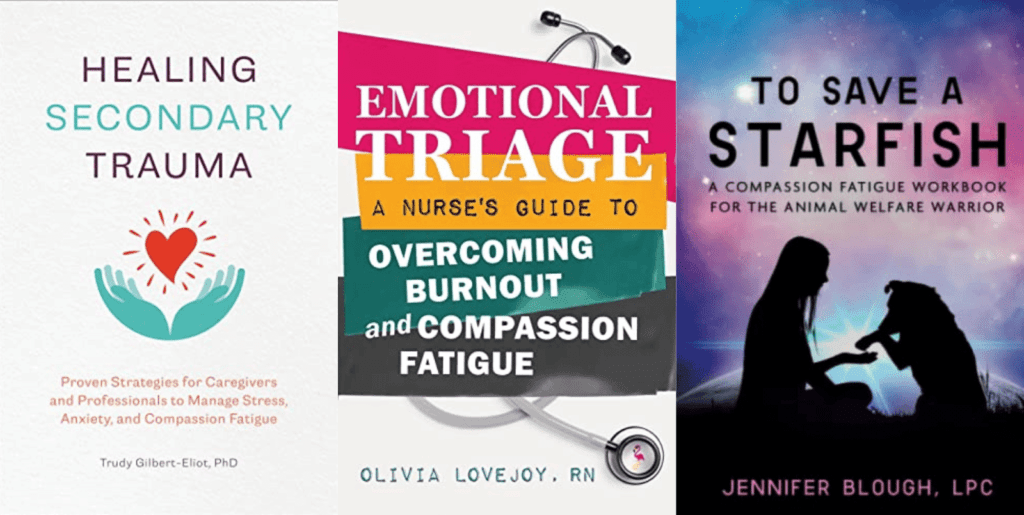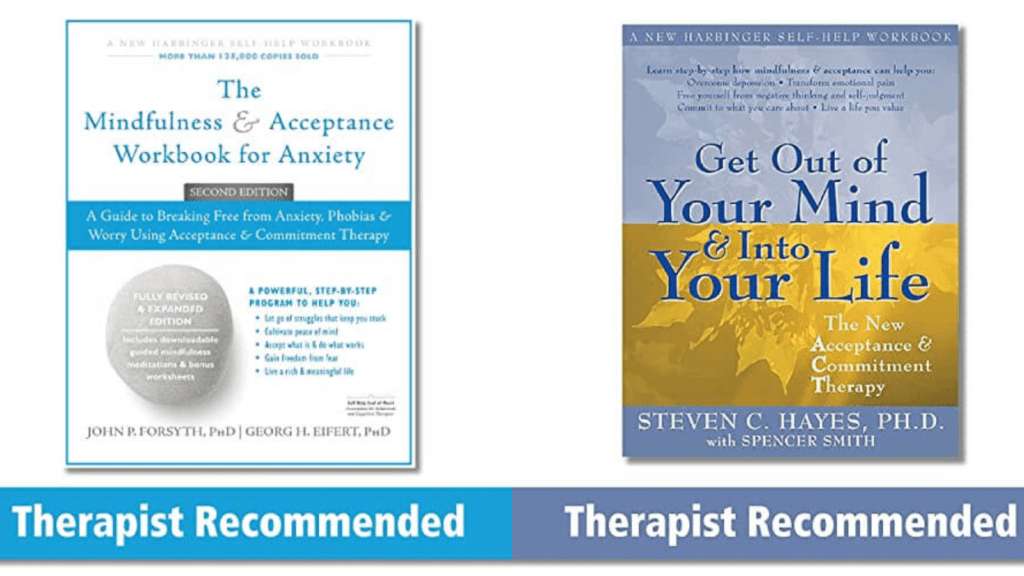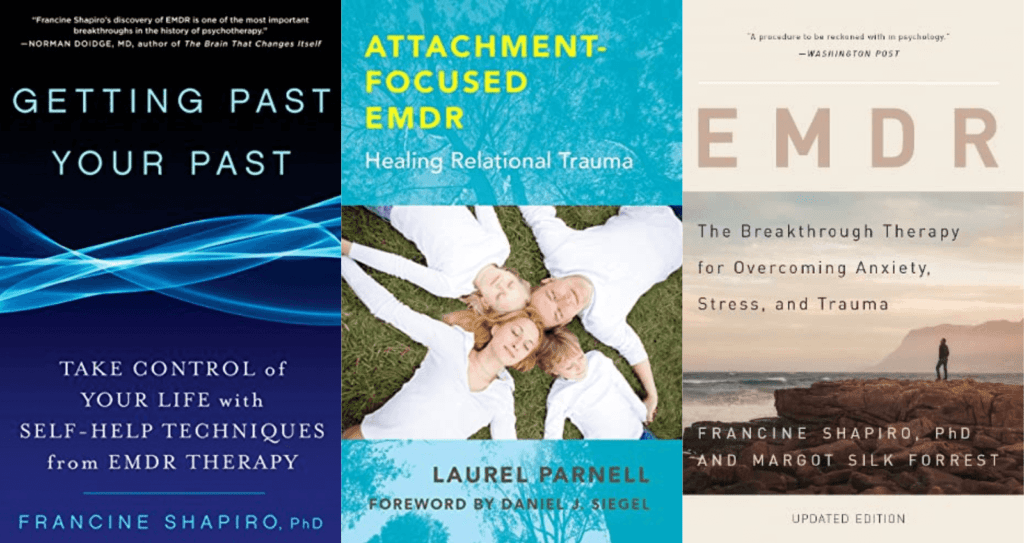This post contains some of the best compassion fatigue books.
- What Is Compassion Fatigue
- Compassion Fatigue Books
- 1. The Resilient Practitioner
- 2. Healing Secondary Trauma
- 3. The Compassion Fatigue Workbook
- 4. Overcoming Compassion Fatigue
- 5. Forward-Facing(R) Professional Resilience
- 6. Reducing Compassion Fatigue, Secondary Traumatic Stress, and Burnout
- 7. To Save a Starfish
- 8. First Responders
- 9. Surviving Compassion Fatigue
- 10. Emotional Triage
- How Compassion Fatigue Books Can Help?
- Conclusion
Disclosure: Some of the links below are affiliate links. This means that, at zero cost to you, I will earn an affiliate commission if you click through the link and finalize a purchase.
What Is Compassion Fatigue
Compassion fatigue is a term used to describe the emotional and physical exhaustion that can result from providing care to others who are experiencing trauma or suffering.
This can happen to caregivers, healthcare professionals, therapists, social workers, and other individuals who are regularly exposed to the pain and suffering of others.
Symptoms of compassion fatigue may include exhaustion, apathy, irritability, difficulty sleeping, a sense of hopelessness, reduced empathy, and a feeling of being overwhelmed.
It is important for individuals who experience compassion fatigue to take care of themselves by seeking support, taking breaks, practicing self-care, and seeking professional help if necessary.
Compassion Fatigue Books

1. The Resilient Practitioner
By Thomas M. Skovholt, Michelle Trotter-Mathison
This new edition also retains its focus on establishing working alliances and charting a hopeful path for practitioners, a path that allows them to work intensely with human suffering and also have a vibrant career in the process.
Related: Compassion Fatigue Self Test

2. Healing Secondary Trauma
By Trudy Gilbert-Eliot PhD
This guide will help you identify symptoms, understand the feelings, and begin the healing process of your own secondary trauma. With interactive exercises and cutting-edge strategies for caregivers and professionals, it will help you address the daily realities of compassion fatigue, stress, and anxiety. Your journey to recovery from secondary trauma starts here.
Related: Top 15 Resilience Journal Prompts
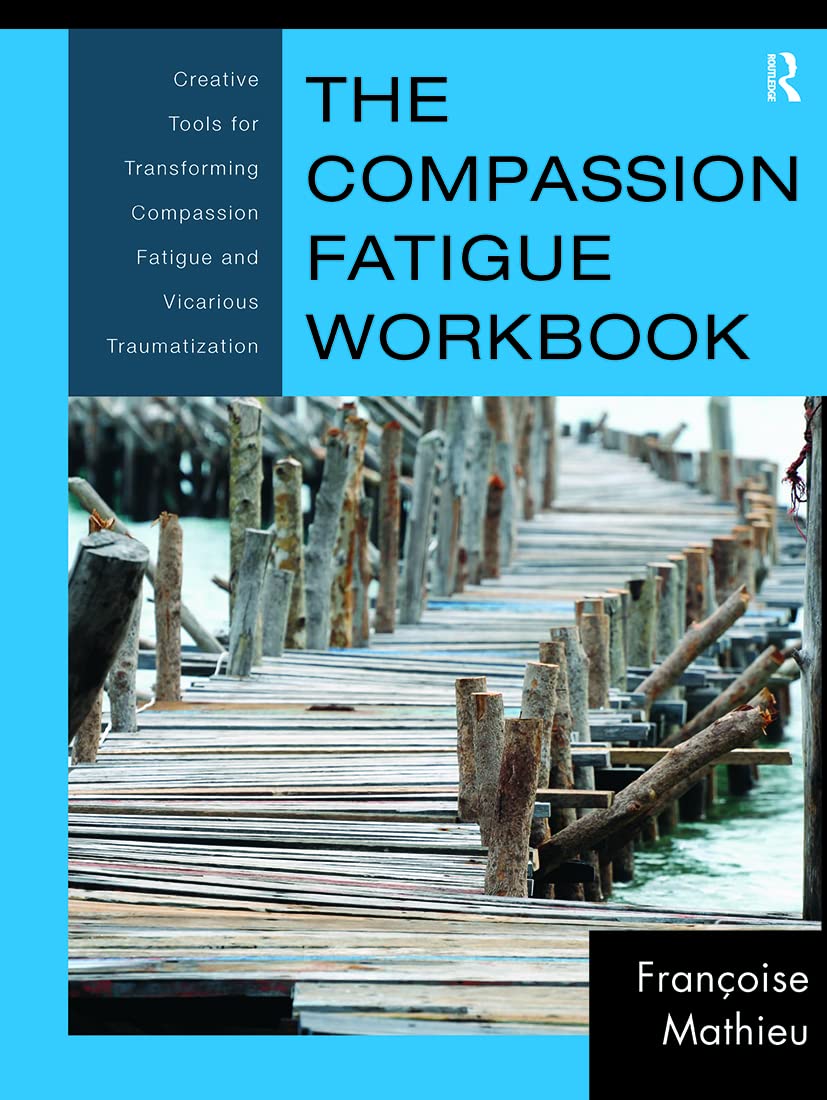
3. The Compassion Fatigue Workbook
By Françoise Mathieu
The Compassion Fatigue Workbook leads the reader through experiential activities designed to target specific areas in their personal and professional lives. It provides concrete strategies to help the reader develop a personalized plan for identifying and transforming compassion fatigue and vicarious traumatization.
Related: Resiliency Quiz: Am I Resilient?
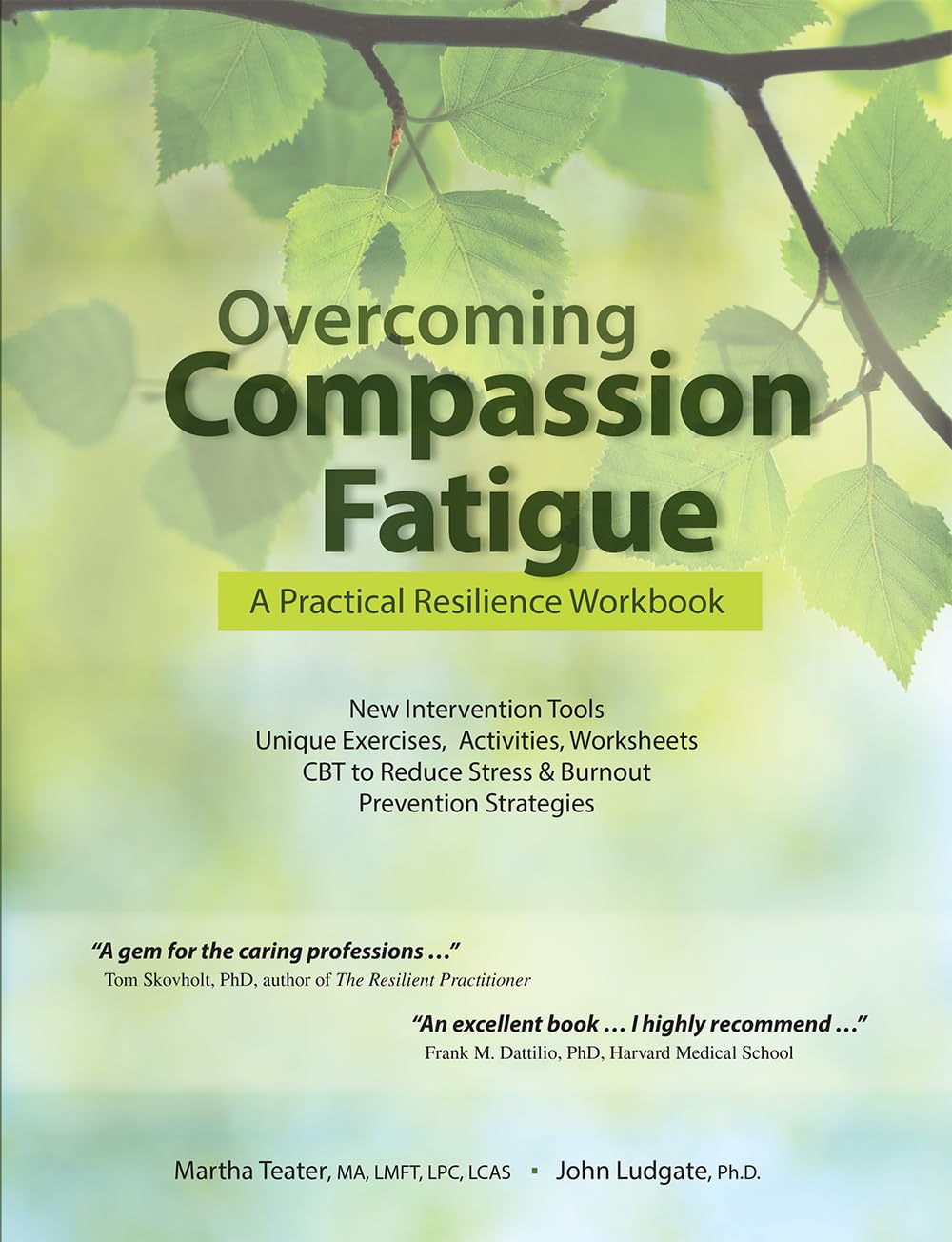
4. Overcoming Compassion Fatigue
By Martha Teater, John Ludgate
A fresh workbook approach for compassion fatigue, burnout and stress, providing all the tools you need to leave work at work – and let it go. Written by two practicing clinicians experienced in compassion fatigue and CBT, this manual is full of proven assessments, interventions, prevention strategies and personal experiences.
Related: How Resilience Works? Top 10 Powerful Ways to Stay Healthy and Happy During Tough Times

5. Forward-Facing(R) Professional Resilience
By J Eric Gentry PH D, Jeffrey Jim Dietz M D
In their book, trauma and compassion fatigue expert Dr. J. Eric Gentry and medical director and practitioner of emergency medicine Dr. Jeffrey “Jim” Dietz combine over seventy years’ worth of experience treating patients and caregivers to present a two-part text that first examines the cause of compassion fatigue, followed by a proven, simple five-step solution for healing and a renewed sense of mission.
Related: Best 99 Coping Skills (+FREE Coping Worksheets)
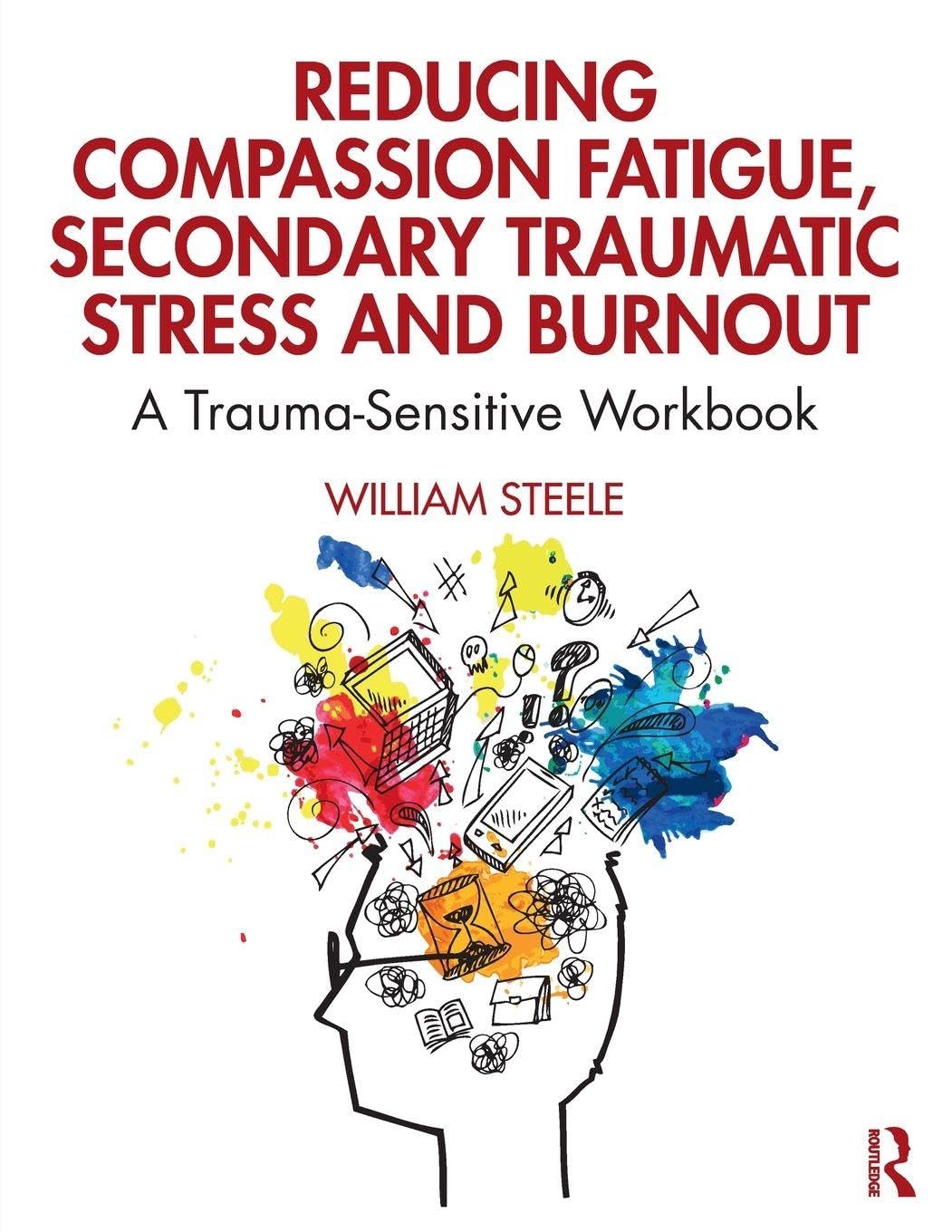
6. Reducing Compassion Fatigue, Secondary Traumatic Stress, and Burnout
By William Steele
Packed with activities, worksheets, and interactive learning tools, the text provides neuro-based and trauma-sensitive recommendations for improving the ways clinicians care for themselves. Each ‘session’ helps clinicians identify their personal self-care needs and arrive at an effective self-care plan that promotes resilience in the face of daily exposure to trauma-inducing situations and reduces the effects of compassion fatigue and burnout.
Related: How To Feel Your Feelings? Top 9 Difficult Emotions To Cope With In Healthy Ways

7. To Save a Starfish
By Jennifer A. Blough LPC
Jennifer Blough, a mental health therapist and former animal welfare professional, helps readers to understand:
- The symptoms and causes of compassion fatigue
- The human-animal bond and the grief of losing animals
- Secondary trauma and the difference between “pain and suffering”
- Organizational compassion fatigue and burnout
- Cultivating compassion satisfaction and a healthy work environment
- How to manage compassion fatigue with self-regulation skills, self-care, mind-body exercises, physical activity, changing unhealthy thinking patterns, creating boundaries, sleep, nutrition, and more.
Related: Best 20 Tips On How To Let Go Of Perfectionism

8. First Responders
By George L. Lindenfeld Ph.D.
Dr. Lindenfeld dives deeply into the unique experiences of PTSD among the brave men and women who put their lives on the line every day to serve our communities.”Building on his expertise in treating active military and veteran populations who suffer from PTSD, Dr. Lindenfeld has developed a promising new intervention that uses sensory activation to reconsolidate traumatic memories without relying on the traditional talk therapy interventions that in some cases have been ineffective or even a deterrent for those seeking help.
Related: Top 10 Books About Perfectionism
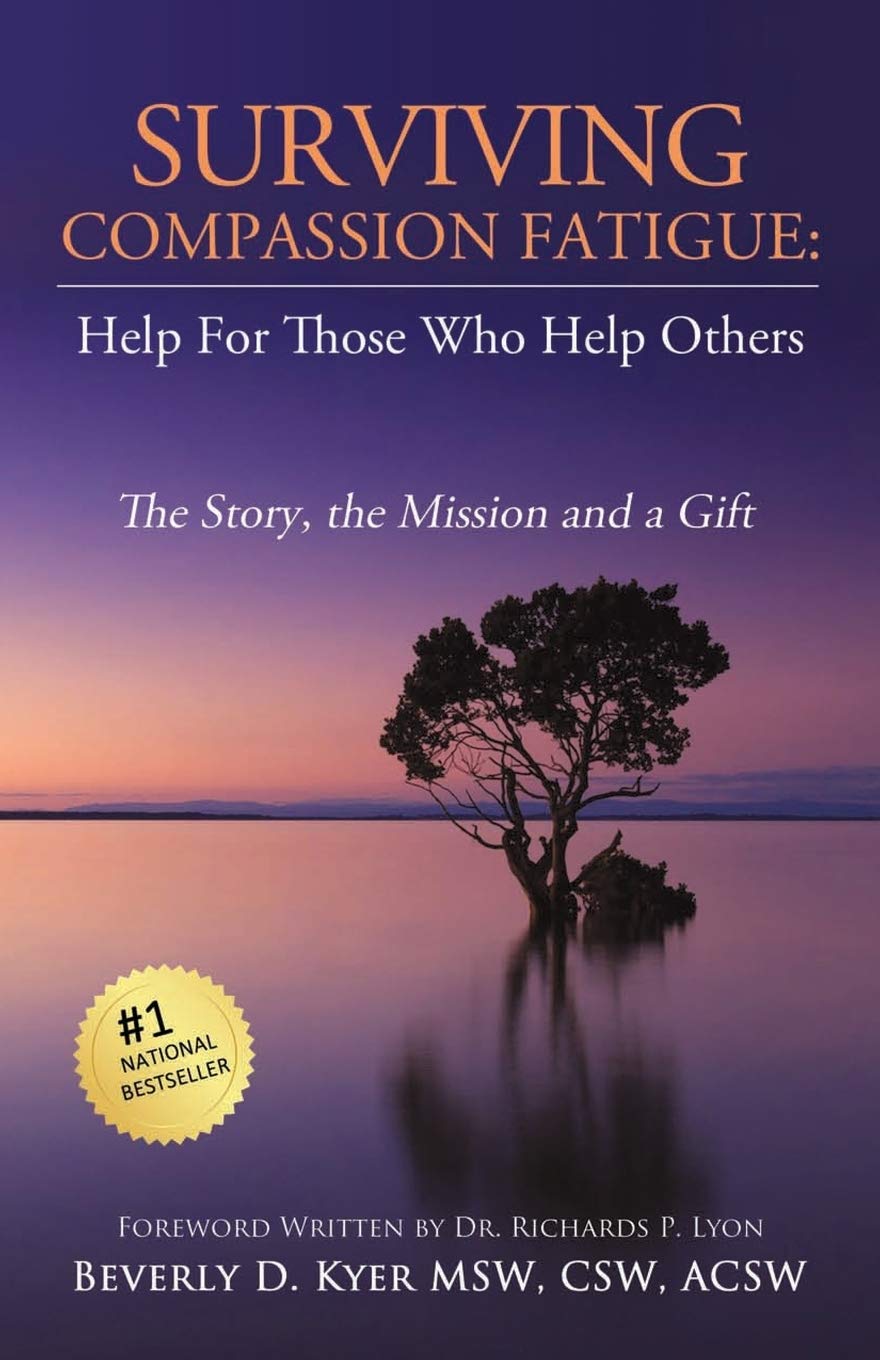
9. Surviving Compassion Fatigue
By Beverly Diane Kyer
In this book, you will learn about one woman’s physical and emotional descent due to years of self-neglect. You will also learn about her recovery as well as how to serve and care for others without forgetting to take care of yourself.
Related: Am I A Perfectionist Quiz
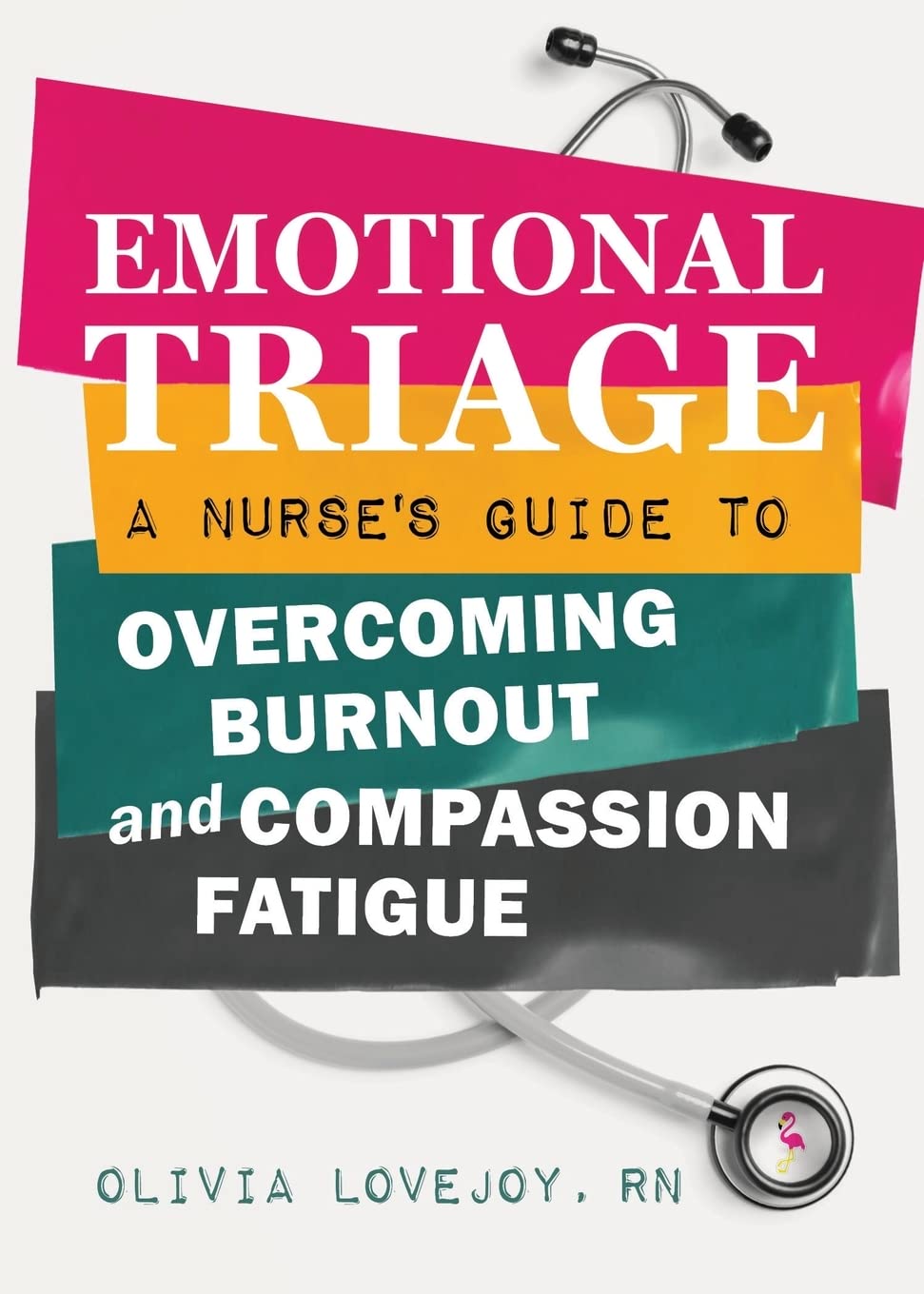
10. Emotional Triage
By Olivia Lovejoy RN
In Emotional Triage author and nurse Olivia Lovejoy uses her personal battles with burnout, resilience, and a good dose of humor, to address how you can:
- Manage and protect your emotional energy
- Promote a healthier mindset
- Redefine how you think of self-care, and how to do it regularly
- Rediscover your passion for your profession
- Develop and grow into a more balanced person
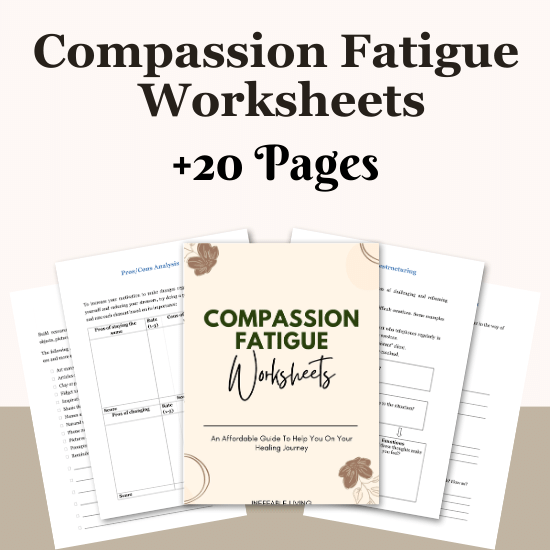
How Compassion Fatigue Books Can Help?
Here are some ways in which compassion fatigue books can help:
1. Understanding compassion fatigue
Compassion fatigue books provide a comprehensive understanding of what compassion fatigue is, its causes, symptoms, and the impact it can have on an individual’s physical, emotional, and psychological well-being.
By gaining knowledge about compassion fatigue, individuals can begin to recognize their own experiences and validate their feelings.
2. Self-awareness and self-reflection
Compassion fatigue books encourage self-awareness and self-reflection by prompting individuals to examine their own emotions, thought patterns, and behaviors.
These books often include exercises, journaling prompts, and reflection questions that facilitate deeper personal insight and understanding.
3. Coping strategies and self-care techniques
Compassion fatigue books offer a range of coping strategies and self-care techniques to manage and prevent compassion fatigue.
These strategies may include setting healthy boundaries, practicing self-compassion, engaging in regular self-care activities, seeking support from others, and developing a self-care plan.
By implementing these strategies, individuals can better protect their own well-being and maintain their ability to provide compassionate care.
Related: Best 11 Exercises To Help You Beat Imposter Syndrome (+FREE Worksheets)
4. Resilience-building
Compassion fatigue books often address the concept of resilience and provide guidance on how to strengthen resilience in the face of ongoing exposure to trauma and suffering.
These books may explore various resilience factors, including social support, adaptive coping mechanisms, and positive mindset shifts, to help individuals bounce back from compassion fatigue and continue to thrive in their professional roles.
5. Real-life stories and case studies
Many compassion fatigue books include real-life stories and case studies from individuals who have experienced compassion fatigue themselves.
These narratives provide a sense of validation and solidarity, allowing readers to relate to others who have gone through similar challenges.
Learning from these stories can inspire hope, promote empathy, and offer practical insights into managing compassion fatigue effectively.
Related: Best 14 Books About Imposter Syndrome
6. Mindfulness and stress reduction techniques
Compassion fatigue books often incorporate mindfulness and stress reduction techniques to help individuals cultivate present-moment awareness, reduce stress, and enhance overall well-being.
These techniques may include meditation, deep breathing exercises, body scans, and other relaxation practices that promote self-regulation and emotional stability.
Conclusion
Compassion fatigue, also known as secondary traumatic stress, is a state of emotional exhaustion and burnout that can occur in individuals who regularly work with individuals who have experienced trauma or suffering.
This includes professionals such as healthcare workers, therapists, social workers, and first responders.
Compassion fatigue books can be beneficial resources for individuals experiencing compassion fatigue, as they offer insights, strategies, and self-care techniques to help cope with this challenging condition.
It is important to note that while books can be helpful resources, seeking support from qualified mental health professionals is essential for addressing and managing compassion fatigue effectively.
